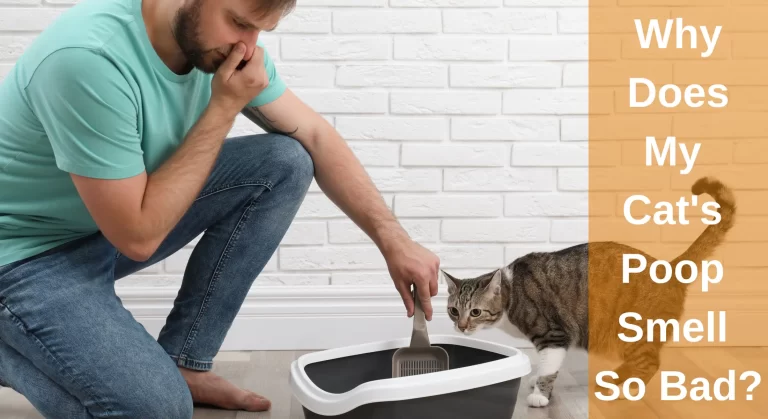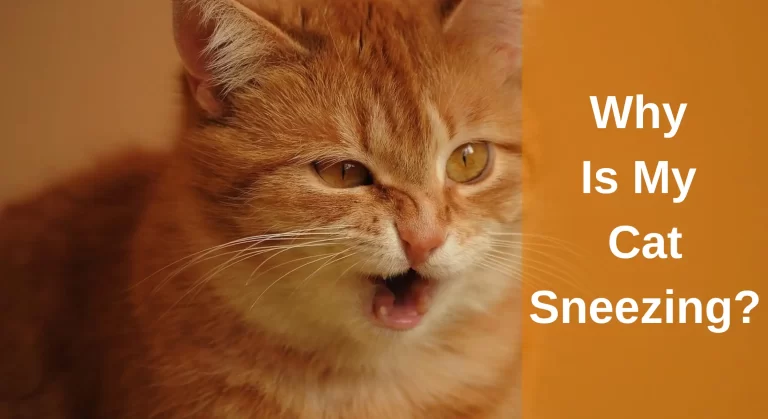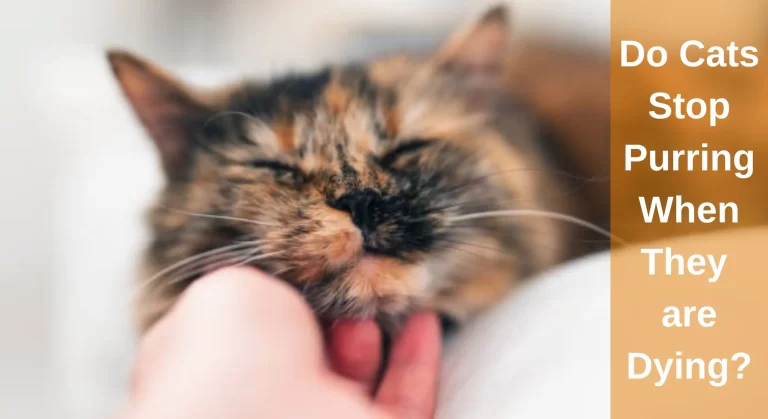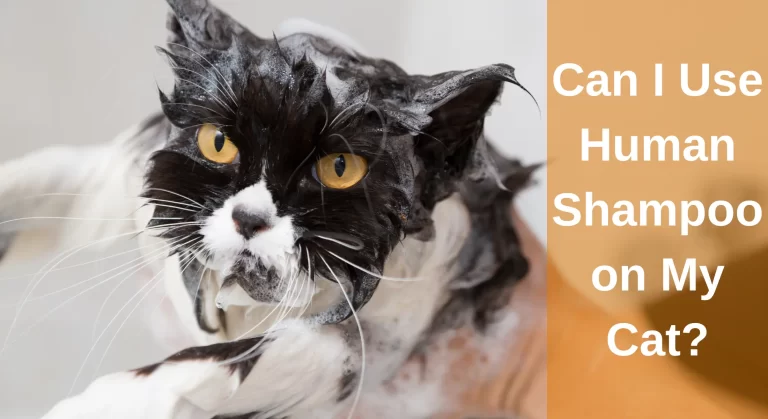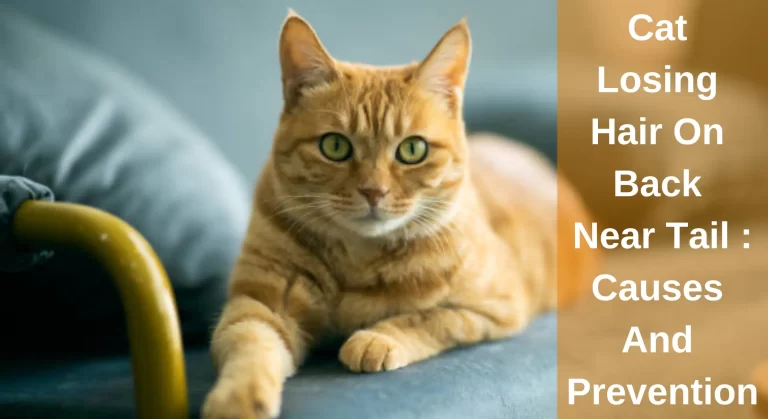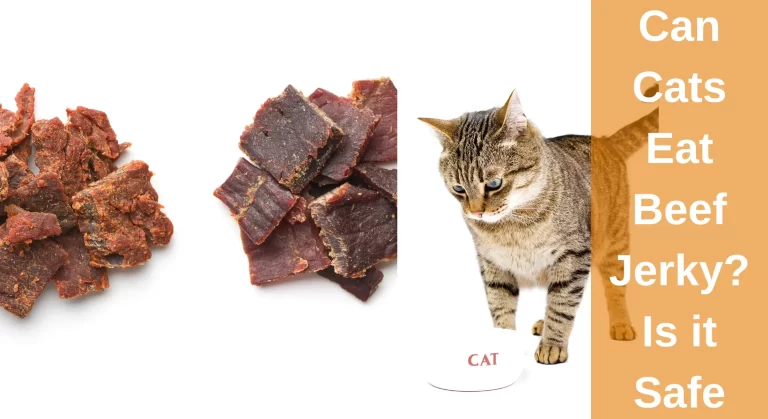My Cat Ate Spaghetti Sauce: Can Cats Eat Spaghetti Sauce
Tomatoes are the one vegetable that has an incredibly wide range of uses; there aren’t many dishes that don’t include them in some form. So, if you’re sitting on the sofa with a big plate of spaghetti and sauce your cat will likely try to grab your plate and attempt to steal a nibble. At that time, you may think can you give your cat spaghetti sauce is it safe for them? “My Cat Ate Spaghetti Sauce”
Spaghetti sauce is indigestible for cats. As this sauce contains a lot of tomatoes which include solanine which cats can’t digest. In addition, this sauce also contains a lot of sodium, which can cause salt toxicity in cats. Also, the sauce’s herbs and seasonings may disturb your cats’ digestive system and may cause severe issues as most cats are allergic to certain herbs.
Even though it doesn’t provide a clear yes or no solution to the problem, however, in this blog, you’ll find the answers to your every query. In this post, we’ve discussed why cats can’t eat spaghetti sauce, whether is it toxic or safe, and which sauces are safe for cats. Also, we’ll help you decide what you can do if your cat consumes this sauce.
What is Spaghetti Sauce?
Tomatoes are used to make the red gravy that is typically served with spaghetti. The solanaceous family member tomato is a good source of nutrients and antioxidants.
They contain potassium, Vitamin C, carotene, and many others. Other components, such as herbs and seasonings, can also be added to the sauce for enhancing its flavor.
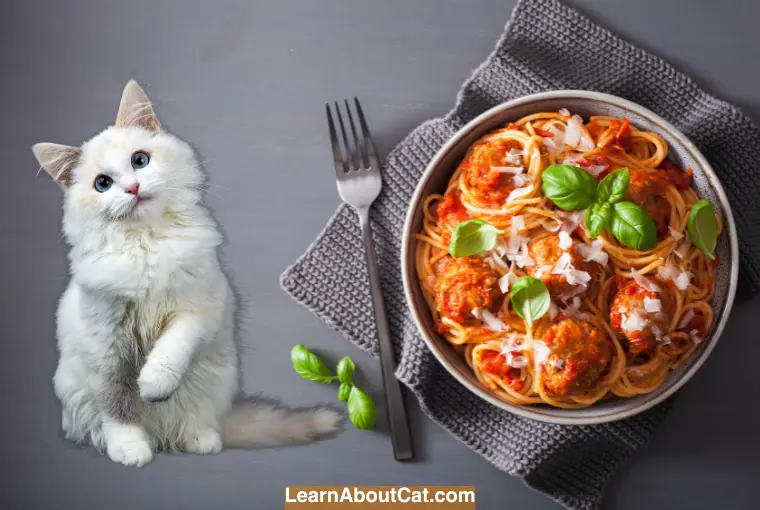
Is Pasta Sauce Toxic to Cats?
Pasta sauce can be harmful to cats, depending on the ingredients it contains. However, it is not a good idea to feed your cat pasta sauce regularly, as it does not provide them with any nutritional benefits.
Most pasta sauces have fundamental components that are safe for cats, like fresh tomatoes, sunflower oil, and spices such as basil and oregano. Yet, additives like garlic cloves and onions, which are poisonous to cats, are frequently present in both handmade and canned pasta sauces.
Both garlic cloves and onions include toxins that will degrade oxygen-carrying cells, which can cause gastritis and anemia (dysentery, nausea, and stomach pain).
Since most pasta sauces include garlic—which is approximately five times more harmful than onions—it will be healthier to prevent your cat from pasta sauce. Also, even if shallots and leeks are present in your pasta sauce you must avoid your cats from eating it.
Moreover, pasta sauce has a lot of salt, which is particularly harmful to cats. It’s also crucial to remember that the amount of pasta sauce a cat consumes will determine how harmful it is. The severity of the adverse effects increases with the amount.
Pasta sauce’s other elements, outside tomatoes, may affect how badly your cat responds to it. For instance, pasta sauce made with a lot of garlic as well as onions will surely be more hazardous to felines than sauce made without all these ingredients.
You Might Like to Read: My Cat Ate My Garlic Bread: What Should I Do
Is it Safe for Cats to Eat Spaghetti? Can Cats Eat Spaghetti Sauce
While pasta itself (without any sauce or seasonings) is not toxic to cats, it is not a good source of nutrition for them.
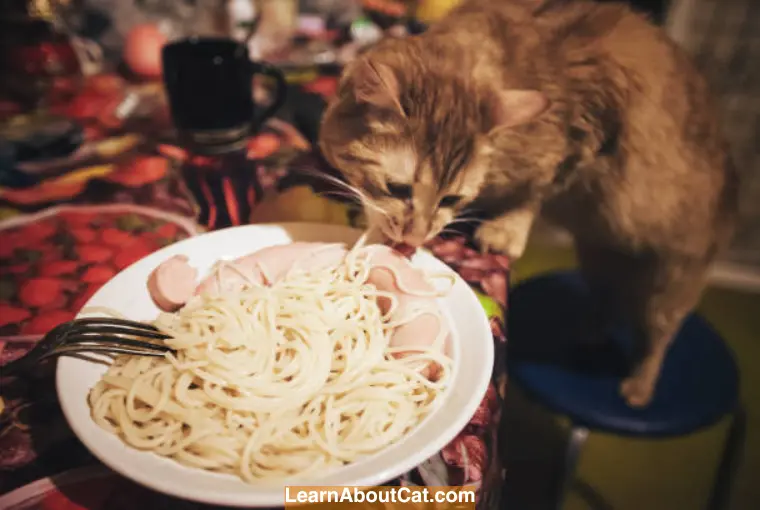
While it hasn’t been proven that spaghetti is harmful to cats, a number of investigations have discovered that boiled spaghetti is heavy in carbs, so it’s a bad diet for cats. Moreover, if your cat has a grain or egg allergy, it isn’t safe for cats to eat spaghetti.
It may cause serious intestinal problems for your furry pet, which might get out of control. The prime reason for not giving your cat spaghetti is that it lacks the critical nutrition and benefits that cats need.
Moreover, cats also can’t consume spaghetti sauce until it’s carefully prepared at the house with tomatoes and no seasonings. These sauces have high concentrations of onion as well as garlic, which may harm your cat in a number of ways and even put his or her life in danger.
Cats are carnivores and do not require the toxic elements found in spaghetti sauce to enter their bodies. They require a diet heavy in fiber, which is the major nutrition you strive for. Inspect each ingredient listed in the sauce container to see if your cat reacts to any of them.
In short, spaghetti can’t kill a cat, however, it may make your cat very unwell and tired as it may be hard on their intestinal tracts given the ingredients it contains.
Also, Check Out: Can Cats Eat Wheat?
Herbs and Seasonings in Pasta Sauce Toxic to Cats
Onions, garlic, or other sorts of herbs and spices are typically found in pasta sauces. If your sauce contains either of these ingredients—onions or garlic—you shouldn’t give it to your cat.
This applies to all members of the Allium family, not only the two mentioned above, but also chives, leeks, and other similar items. The following is a list of a few signs that you must look for in cats who have been poisoned by herbs or seasonings.
- A decrease in appetite
- Color of the urine
- White gums
- Fatigue
- muscular coordination issues
- Excess salivation
- Dysentery
- Puking
- Elevated heart and respiratory rate
- Collapse
For the best outcomes, it’s usually best to simply prevent your cat from eating all of these items.
Find Out: Can Cats Eat Pork?
What Should I Do if My Cat Ate Spaghetti Sauce?
Determine how much your cat has consumed the sauce. That will assist you to estimate how severe the negative effects will be. Rehydrating helps reduce gastrointestinal symptoms that are just mildly present.
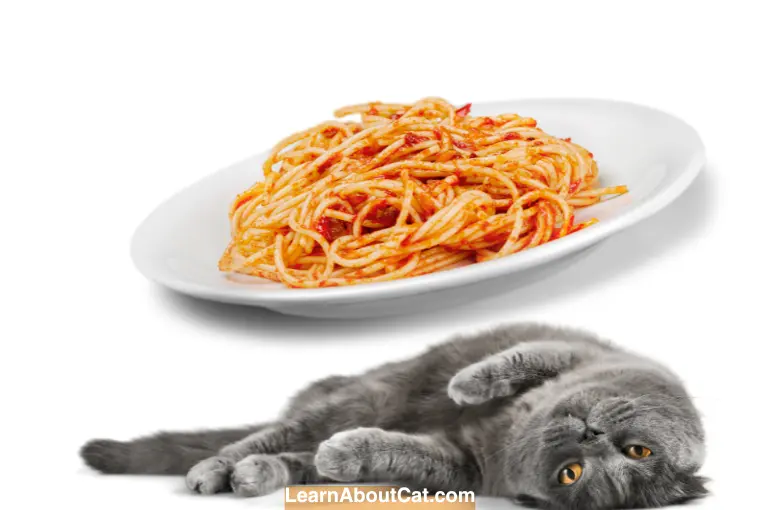
However, it’s recommended to contact your veterinarian right away if you discover that the cat consumed a lot of spaghetti sauce.
This can be an urgent medical situation. It’s crucial to keep in mind that your cat might not exhibit all the above signs of toxicity. Thus, it is advised to speak with your vet for specific guidance on what to do next if you think your feline has consumed spaghetti sauce.
Your cat will have the highest chance of recovering fully if you take him to the vet as quickly as he exhibits symptoms.
Your cat will have the highest chance of recovering fully if you take him to the vet as quickly as he exhibits symptoms.
Check Out: Can Cats Eat String Cheese?
Is Tomato Sauce Bad for Cats?
Yes, Solanine, a substance found in tomatoes, is poisonous to cats. It may be tough for tomato lovers to accept that the intriguing vegetable could be dangerous. There are numerous advantages of eating tomatoes as well. For instance, they taste amazing and are loaded with nutrients such as vitamins and minerals.
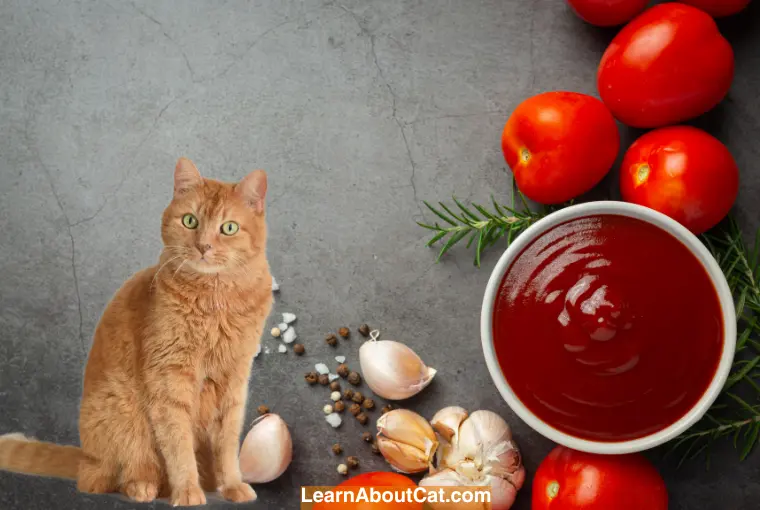
Along with lycopene, this tasty vegetable also contains potassium and vitamins C and K1. But tomatoes, on the other hand, are an absolute no-no for cats. Cats are allergic to the substance solanine.
Although experts stress that a little amount of fresh tomatoes, which is present in certain conventional cat food products, is healthy for cats. Still, it’s advisable to not experiment with your cat’s health because, just like us, cats can develop strange allergies, even to fresh red tomatoes.
Moreover, it’s recommended to prevent your cats from tomato plants if you’ve got any in your residence. Tomato plant stalks and leaves may upset a cat’s gut and cause nausea, drowsiness, and other symptoms like a slow heartbeat.
Symptoms of Tomato Sauce Toxicity in Cats
If your cat consumes tomato sauce, several negative events might occur. Tomatoes, the main component of tomato sauce include the solanine compound that is toxic for cats. Some harmful signs of solanine poisoning in cats are as follows;
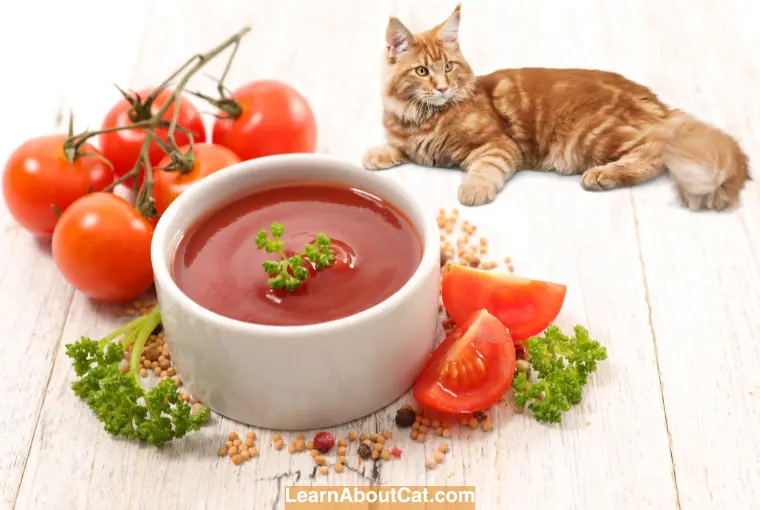
- Stomach cramps
- Diarrhea
- Nausea
- Other intestinal issues
- Neurologic signs such as headaches and sleepiness
- Cardiac irregularity
- Irritation in the esophagus
The majority of tomato sauce’s other constituents, except solanine, are also poisonous for cats. For example, tomato sauce containing garlic, shallots, onions, leeks, or any other Alliums family spices may cause felines to develop hemolytic anemia, a potentially fatal blood condition. Signs of this extreme condition of anemia can vary drastically, including:
- Pale gums and tongue
- Difficult inhaling
- Irritability
- Hunger loss
- Higher pulse rate
- Lack of energy
- Reddish urine
Hemolytic anemia can cause significant organ failure, collapse, and even mortality if immediate medical attention is not received.
Cats must not consume salt which is another major element in tomato sauce. Salt poisoning is a life-threatening condition that can affect cats who consume too much salt. Salt toxicity symptoms include;
- Digestive system issues such as nausea and diarrhea
- Kidney problems, such as excess water intake accompanied by a lot of urinating
- Reduced appetite
- Tiredness
- Misbehaviors
- Shaking
When sodium toxicity is severe, it can result in convulsions, unconsciousness, and possibly death.
Also, wine can be utilized for the preparation of various tomato sauces. Sadly, cats shouldn’t consume alcohol or any other intoxicants. So, it’s a big no for tomato sauce.
Are There Any Sauces Safe for Felines?
If your cat like sauces, try giving them natural sauces or sauces without tomatoes. You can also prepare the homemade sauce, though you’ll need to be cautious when handling the tomatoes.
Some cat-safe alternatives to spaghetti sauce include cooked chicken or fish, plain cooked pasta, or small amounts of canned pumpkin or sweet potato.
But this isn’t possible that your feline will enjoy sauces without tomatoes, mustard, or garlic. Furthermore, there is no assurance that your kitty friend won’t experience an allergic response to the sauce you feed him.
Interesting Reading: Can Cats Eat Human Food? List of Human Foods That Cats Can and Cannot Eat
Can Cats Eat Spaghetti Squash?
Yes, cats can eat spaghetti squash. It is a good source of vitamins, minerals, and fiber, and it is low in calories and fat. Spaghetti squash is also a good source of beta-carotene, which is converted to vitamin A in the body. Vitamin A is important for vision, growth, and reproduction.
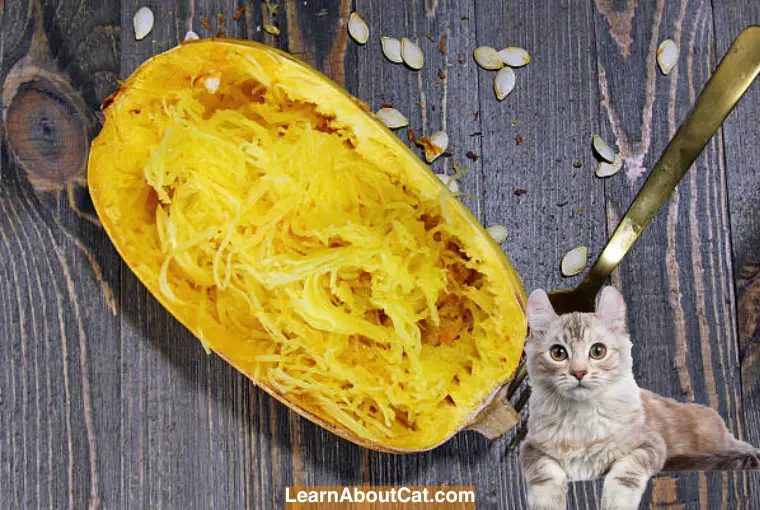
However, it’s important to remember that spaghetti squash should only be given to your cat as a treat and not as a regular part of their diet. While it’s healthy in small amounts, too much spaghetti squash can cause digestive upset and potentially lead to other health problems.
When giving your cat spaghetti squash, it’s important to prepare it properly. Cooked, unseasoned spaghetti squash is best for cats, as it is easier for them to digest.
How to Feed Cat Spaghetti Squash
To feed your cat spaghetti squash, simply remove the seeds and skin, and then cook the squash until it is soft. You can then mash the squash or cut it into small pieces. You can also add the squash to your cat’s food.
Here are some tips for feeding your cat spaghetti squash:
- Start with a small amount and increase the amount gradually as your cat gets used to it.
- Do not add any salt, pepper, or other seasonings to the squash.
- If your cat has any digestive problems, you may want to cook the squash until it is very soft.
Frequently Asked Questions
Can cats eat spaghetti Bolognese sauce?
No, cats can’t consume Bolognese sauces as it includes a lot of hazardous elements that might be detrimental. It has no nutrient benefit that your cat can enjoy.
Is Alfredo sauce OK for cats?
No, cats should not consume Alfredo sauce. Garlic, shallots, and crème are common ingredients used in Alfredo sauce, none of which are good for cats. The cream is heavy in fatty content, which might cause gastrointestinal problems and overweight in cats. Shallots and garlic could be poisonous to cats. Moreover, Alfredo sauce frequently includes extra salts and other flavors, which when consumed in high quantities, can be detrimental to cats.
Can cats eat macaroni and cheese?
While macaroni and cheese aren’t a nutrient-dense diet for cats, it isn’t advised to give them. The normal high calorie, salt, and carbohydrate content of macaroni and cheese can cause cats to experience digestive disorders, being overweight, and have other health complications.
Furthermore, macaroni and cheese frequently include dairy ingredients like cheddar, cream, and butter, which cats may find challenging to metabolize and may cause stomach irritation.
Can cats eat other types of pasta?
While cats can technically eat other types of pasta, such as macaroni, penne, and fettuccine, it’s generally not recommended to give them pasta as a regular part of their diet. It’s important to avoid feeding them any pasta with sauce or seasonings that may contain ingredients that are toxic to cats, such as garlic and onions.
Final Verdict!
In summary, until you prepare your own spaghetti sauce, your cat should not consume them. Moreover, you must take caution when adding tomato to the sauce because it also contains a toxic compound. Further, it is not a meal that your cat requires to maintain health, so it doesn’t have any nutrient benefit in any way for them.
These sauces typically have a high sugar and sodium content, which is also bad for cats and may even lead to poisoning. So, if you suspect any unusual behavior in your cat, immediately call your vet. In light of this, the reply to the issue of cats can consume spaghetti sauce ought to be a clear no.
Whenever it concerns your cat, it’s always safer to take precautions than sorry. Give him his preferred wholesome snacks, and save the spaghetti sauce for yourself.
Related Posts:
Who is Isabella?
My name is Isabella, and I am a dedicated and knowledgeable cat enthusiast. With years of experience caring for cats and a deep love for felines, I made a mission to help other cat lovers navigate the challenges of cat ownership.

